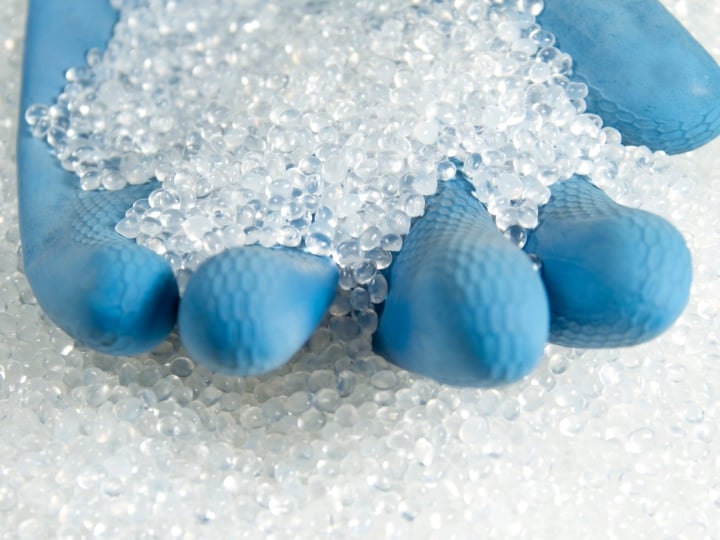Flexural Properties of Unreinforced and Reinforced Plastics and Electrical Insulating Materials by Four-Point Bending ASTM D6272
Scope:
The Flexural test ASTM D6272 measures the force required to bend a plastic beam under a four point loading system. The test method is used for reinforced or unreinforced materials including high modulus composites and for materials that do not fail within the limits of ASTM D790 (a three point loading test). The major difference between the three point and four point flexural tests is the location of the bending moment. The four point bending method allows for uniform distribution between the two loading noses, whilst the three point bending method’s stress is located under the loading nose.
Since the flexural properties of many materials can vary depending on temperature, rate of strain and specimen thickness, it may be appropriate to test materials at varied parameters.
Test Procedure:
For the four point flexural test, the specimen lies on a span and stress is uniformly distributed between the loading noses. There are two procedures within the ASTM D6272 method. Procedure A is followed for materials with smaller deflection and for measuring modulus. Procedure B is followed for materials with larger deflections and used for measuring strength. Materials specifications may also be followed. Support span-to-depth ratios are dependent on material type and thickness. Load span to support span can be a ratio of 1 to 2 or 1 to 3.
Elevated or Reduced Temperature Test Procedure:
A thermal chamber is installed on the Universal Testing Machine. The chamber is designed to allow the test mounts from the base and crosshead of the Tester to pass through the top and bottom of the chamber. Standard test fixtures are installed inside the chamber, and testing is conducted inside the controlled thermal environment the same as it would be at ambient temperature. The chamber has internal electric heaters for elevated temperatures and uses external carbon dioxide gas as a coolant for reduced temperatures.
Specimen size:
ASTM D6272 outlines specimen sizes for specimens with thickness less than 1/16 inch, thickness greater than 1/16 inch, laminate thermosetting sheet, molded materials and high-strength reinforced composites. Five specimens are typically tested. For anisotropic materials, flatwise and edgewise specimens may be tested.
Data:
Flexural Strength
Flexural Yield Strength
Flexural Offset Yield Strength
Stress at Strain
Tangent Modulus of Elasticity
Secant Modulus of Elasticity
Equipment Used:
Universal Testing Machine
Four Point Flexural Test Fixture
**Please note that this test description is intentionally generic in nature and aimed at providing a descriptive summary to enhance test understanding. Standards can be obtained from appropriate standard authorities.
Relevant/related links:

